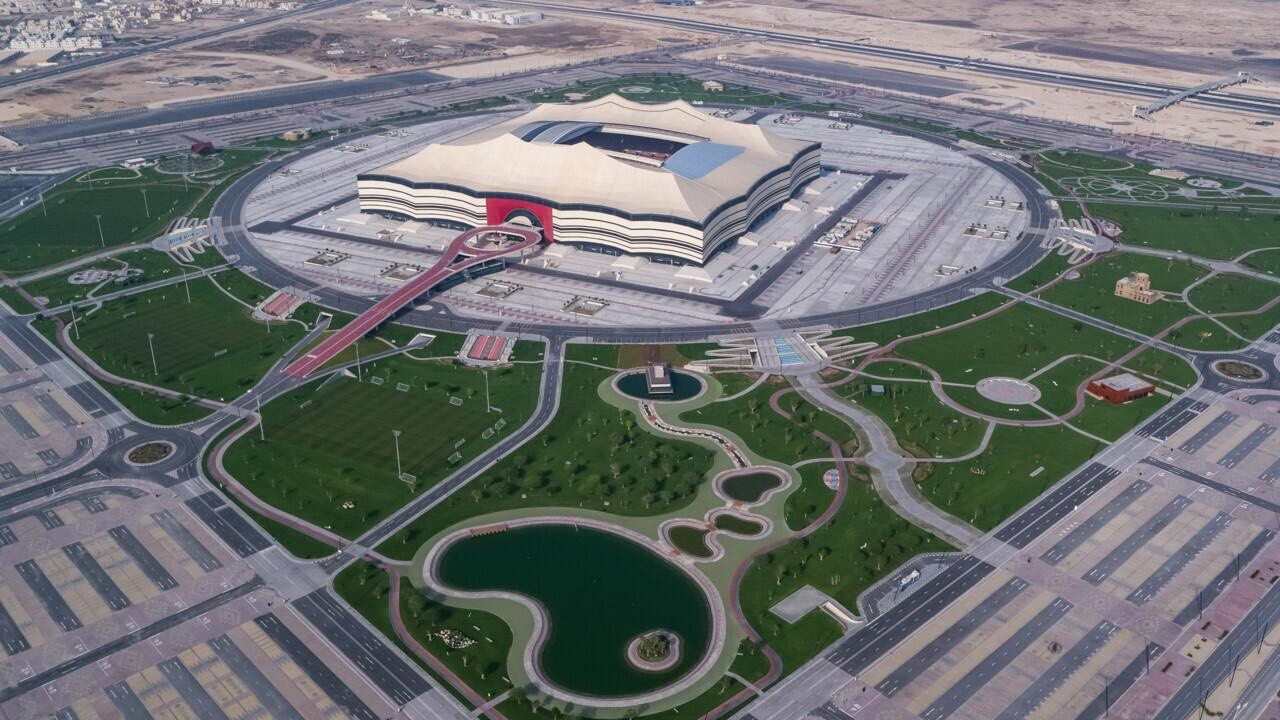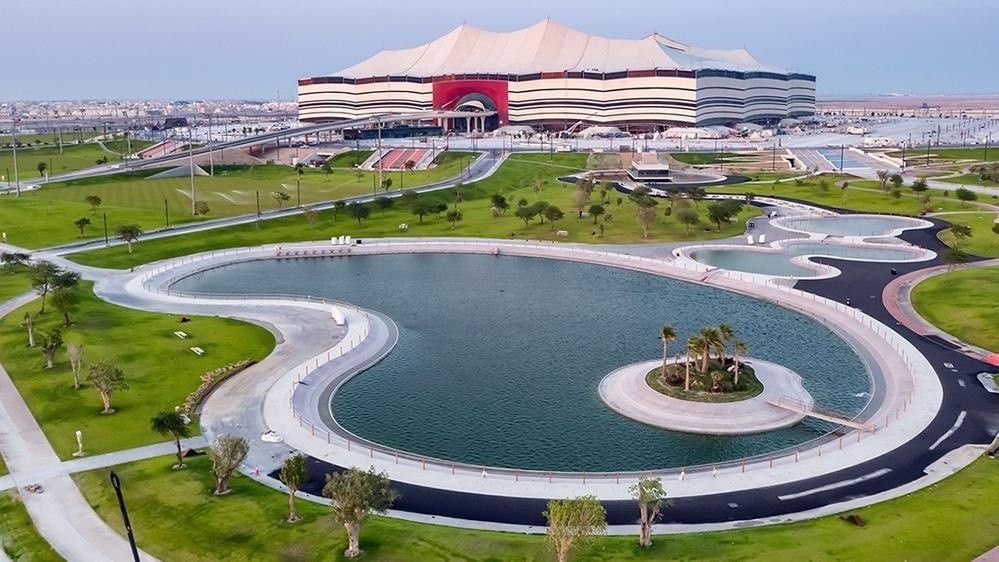BIO-UV Group’s successful installation of advanced water treatment systems at Doha’s state-of-the-art Al-Bayt Stadium in the city of Al Khor, Qatar has met the five-star sustainable rating set by FIFA World Cup Qatar 2022.
The 63,000-capacity arena, the second largest in Qatar, was installed with a range of advanced UV and ozone-based systems to treat the stadium’s changing room pools, ornate water features and extensive lakes.
Installed by system integrator Watermaster Qatar and commissioned prior to the FIFA Arab Cup in December 2021, BIO-UV Group’s scope of supply included triogen® O3 M7-520A and O3 M6-WC50S ozone generators, along with triogen® CF1000 and CF220 full flow UV water treatment systems.
While a minimum amount of chlorine must be added to public pools by law, the use of UV and ozone as secondary source of disinfection reduces the chlorine demand significantly, saving money and improving water quality.
Souheil Nasrallah, General Manager, Watermaster Qatar, said: “The lakes and rivers in the grounds of the stadium provide a beautiful, natural habitat for thousands of fish, so chemical-free disinfection and systems allowing the re-use of treated sewage effluent (TSE) were environmentally very important. BIO-UV Group, with its triogen® range is a trusted partner with track record in reliable, sustainable water treatment solutions.”
Anne Julia, BIO-UV Group’s Export Director, said: “The FIFA World Cup Qatar 2022 Sustainability Strategy includes a comprehensive set of environmentally related initiatives, including sustainable waste management practices. That our water treatment systems have been selected for what is one of the world’s most modern sporting arenas is testament to the reliability and effectiveness of our technology in preventing the spread of infection through waterborne pathogens.”
Julia furthered: “Water treatment and water quality are always important. But in warmer climates, particular attention needs to be paid to disinfection as the multiplication rate of bacteria, viruses, and algae can be exponentially faster. There is also a greater potential for exotic diseases and parasites.”
BIO-UV Group Regional Manager Khalifudeen Shafi added: “Oxidation and UV technologies destroy many contaminants from the water, attacking the vital DNA of the bacteria and micro-organisms directly. It is also effective in dealing with chlorine-resistant pathogens such as Cryptosporidium and Giardia.”




